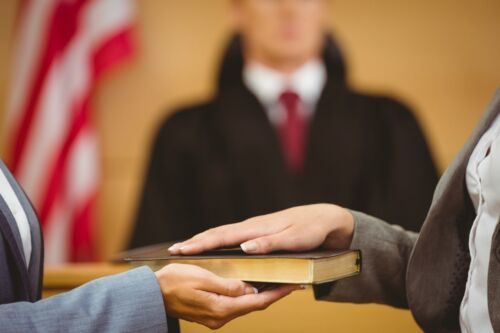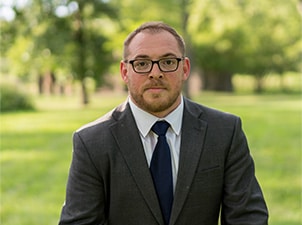Eyewitness testimony can play a pivotal role in a criminal trial, but it is far from infallible. Nonetheless, juries give considerable weight to eyewitness testimony, sometimes with disastrous results.
Research consistently shows that human memory is unreliable and prone to error. Even people who believe they have a good memory can make mistakes about important details. A witness might inaccurately recall the sequence of events, combine memories from different events, or even internalize another person's account as their own.
Unfortunately, unreliable witness testimony can have severe consequences in a criminal case. If you were charged with a crime and eyewitness testimony is a key part of the evidence against you, you need a skilled and experienced criminal defense attorney who can challenge these inaccuracies and cast doubt on a witness’s reliability.
How Is Eyewitness Testimony Used in Criminal Cases?
Testimony from an eyewitness can be a crucial piece of evidence in a criminal trial.
- An eyewitness can establish what happened, who was involved, and provide details that can support or refute key elements of the prosecutor’s case.
- Eyewitnesses provide important corroborating evidence to support physical evidence like fingerprints, DNA evidence, or surveillance footage.
- An eyewitness can establish or discredit an alibi by showing where a defendant was when a crime occurred.
- The prosecutor may call an eyewitness to identify a suspect.
- An eyewitness can testify about a defendant’s past behavior, character, and credibility.
While jurors often give significant weight to eyewitness testimony, a skilled defense attorney can develop a comprehensive defense strategy that will explain why eyewitness accounts are unreliable, highlight distortion of memory, and challenge the accuracy of a witness’s testimony.
Are Eyewitness Accounts Unreliable?
Despite its frequent use in criminal trials, eyewitness testimony is one of the leading causes of wrongful convictions. Understanding why witness testimony is unreliable is one of the first steps to successfully challenging it. Factors that can make eyewitness testimony unreliable include:
- Memory distortion. The human memory is not a perfect recording of events. Over time, memories can fade or become distorted, especially if the memory was formed during a high-stress situation.
- Stress and anxiety. Individuals who are under stress, such as during a crime, are less likely to recall details accurately.
- Cross-racial identification issues. Studies show that people are less accurate when identifying individuals of a different race.
- Influence of law enforcement. The use of leading or suggestive questions by law enforcement agents can introduce false memories and inaccurate information that can bias a witness’s memory.
- Environmental conditions. Lighting conditions, distance, and the witness’s distance from the events can make it difficult for a witness to accurately identify someone.
How to Challenge Witness Memory and Perception
Challenging the accuracy of the memory of a witness is a key part of a comprehensive defense strategy. During cross-examination, a skilled defense attorney will ask detailed questions about the circumstances under which the witness observed the alleged crime. For example:
- What were the lighting conditions?
- What time of day did the alleged crime occur?
- How far was the witness from the defendant when the alleged criminal activity occurred?
- What state of mind was the witness in when the alleged crime occurred, and how did it affect the witness’s ability to focus on important details?
- Was anything obstructing the witness’s view?
- Does the witness regularly wear glasses, and were they wearing them at the time?
A defense attorney can also use expert witness testimony to discredit eyewitness testimony by highlighting well-documented flaws in human memory and perception. A psychologist or other neurological expert can explain how factors like stress, poor lighting, cross-racial identification, and the passage of time can distort a witness’s ability to recall events accurately. Using scientific evidence, an attorney can cast doubt on the reliability of witness testimony and show it may not be as accurate as it initially appears. This strategy can create reasonable doubt, which can be used to protect the rights of the accused and secure a Not Guilty verdict.
Elmen Legal Fights to Challenge Unreliable Witness Testimony
Unfortunately, wrongful convictions can result from flawed witness testimony caused by memory distortion, bias, or improper police procedures. When criminal charges are filed with limited supporting evidence, you need a defense attorney who can explain why eyewitness accounts are unreliable, aggressively cross-examine a witness, and argue for a Not Guilty verdict.
Michigan criminal defense attorney Robert Elmen has years of experience representing people charged with crimes throughout Michigan. He will work to ensure you receive a fair trial and will fight to challenge unreliable witness testimony and keep it out of the courtroom.
Contact Elmen Legal Today
Elmen Legal is based in Ann Arbor and represents people charged with crimes throughout Michigan. Call (734) 707-8915 or contact Elmen Legal today to schedule a confidential appointment to discuss your situation and how Elmen Legal can help.




